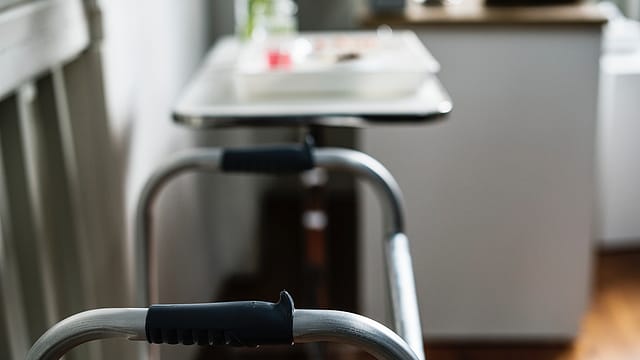Regulator asks J&J to pay Rs 20 lakh for each faulty hip implant
ADVERTISEMENT

India’s drug regulator has asked Johnson & Johnson (J&J) to pay Rs 20 lakh as interim compensation to all patients who have received faulty hip implants, The Times of India reported on Wednesday.
Meanwhile, the government has set up a central expert committee to determine how much the patients with the ‘ASR’ hip implants should be compensated, The Economic Times reported, citing a document sent by the health ministry to the country’s apex drug regulator. The five-member panel will be chaired by R.K. Acharya, director of the New Delhi-based Safdarjung Hospital's sports injury centre, according to an order dated August 30, the financial daily reported.
According to the Times of India report, Rs 20 lakh would be the base compensation to all such patients, the Central Drugs Standard Control Organisation (CDSCO) said in a letter it sent on Tuesday to J&J. The move was in compliance with recommendations of a panel headed by Dr Arun Agarwal, former dean of New Delhi’s Maulana Azad Medical College, the report said.
Each patient who got the implant would be evaluated individually to find out the extent of medical problems that could arise, and the compensation amount would be raised accordingly, the CDSCO has said, the daily reported. The regulator has also asked the pharma major to extend its medical management programmes, as well as reimburse medical costs till 2025—the average life of an orthopaedic implant, the report said.
In 2010, J&J had started its global recall of the ASR hip implant and stopped its reimbursement programme for affected patients in August 2017. In the US, the company agreed to pay $2.5 billion to 8,000 patients in 2013 for the faulty implants, the report said, adding the company had informed the regulator that in India, around 4,700 people had received such implants, but more than 3,600 were yet to be traced.
The Economic Times report said the new panel will have to decide on the compensation amount the patients would receive within 45 days of receiving a report from the state committees that are also being set up to trace them.
Those who underwent one or more revision surgeries and were still suffering from disabilities, and those with ASR and facing any other systemic disorder where the cause is established, are entitled to compensation, the report said, adding that even those patients who had ASR implants and didn’t undergo any revision surgeries, and those who do not suffer any disabilities following one revision surgery were also eligible.
The financial daily quoted a J&J spokesperson as saying that since the voluntary recall decision was made, J&J’s DePuy Orthopaedics unit—which manufactured these implants—had taken measures to provide information to patients and surgeons, including an "unprecedented" reimbursement programme to address recall-related costs.